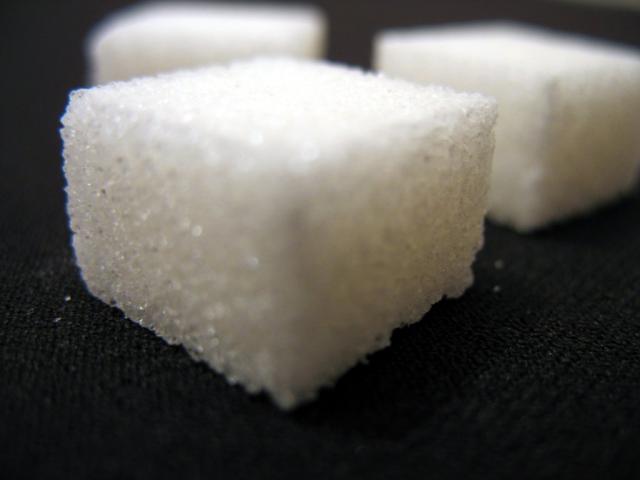Approximately 6000 students will be entering the GAMSAT battlefield on Saturday, in the hopes of continuing onto a program in medicine, dentistry or some other health field. Some of you are probably anxious, some of you will still be studying frantically, while others will have reached the 'I don't care anymore point'.
Regardless of how you are feeling the most important thing is to get a good night's sleep tomorrow night. Sleep deprivation can greatly affect performance and make you more susceptible to consuming caffeine (which as I noted previously, is not always a wise move). So to begin with here are some general tips (some are quite obvious, but certain people need a friendly reminder) that may help you to get a better nights sleep.
 Reduce Sugar Consumption Before Bed - sugar raises the body’s insulin level to metabolize it which leads to increased energy
Reduce Sugar Consumption Before Bed - sugar raises the body’s insulin level to metabolize it which leads to increased energy
Drink Water - dehydration will cause you to wake up thirsty
Decrease Caffeine/Nicotine Use - both are stimulants and will keep you awake
Decrease Alcohol Use - it may help you pass out, but you will remain in the first stages of sleep and never enter the more deep, restorative phases. Alcohol also causes dehydration.
Reduce Stimuli - Heavy computer and television use before bedtime may effect “sleep demand and sleep quality.”
Learn Relaxation Techniques: some I've heard include;
- Breathing slowly and saying re when you are breathing in and lax when you are exhaling.
- Also whilst lying in your bed you can tense all your muscles and then relax and try and think that your are sinking into the bed.
Use A Comfortable Bed And Pillow - this is the most obvious, but probably the most overlooked. Make certain your current bed and pillow are not the reason for difficulty sleeping.
Finally it can't be ignored that being stressed is going to impact on your ability to sleep. So try and do things you find relaxing. I would normally recommend exercise as a stress alleviator, but I know for a few people that exercise actually makes them more stressed.
Here is brief overview of what I did last year on the night before GAMSAT
So good luck to everyone who is sitting the GAMSAT on Saturday, may the force be with you.
So you think you could do medicine series
Introduction | Where to Study | GAMSAT: The Day Before. On the Day. Tips. | UMAT: An Introduction
Regardless of how you are feeling the most important thing is to get a good night's sleep tomorrow night. Sleep deprivation can greatly affect performance and make you more susceptible to consuming caffeine (which as I noted previously, is not always a wise move). So to begin with here are some general tips (some are quite obvious, but certain people need a friendly reminder) that may help you to get a better nights sleep.
 Reduce Sugar Consumption Before Bed - sugar raises the body’s insulin level to metabolize it which leads to increased energy
Reduce Sugar Consumption Before Bed - sugar raises the body’s insulin level to metabolize it which leads to increased energyDrink Water - dehydration will cause you to wake up thirsty
Decrease Caffeine/Nicotine Use - both are stimulants and will keep you awake
Decrease Alcohol Use - it may help you pass out, but you will remain in the first stages of sleep and never enter the more deep, restorative phases. Alcohol also causes dehydration.
Reduce Stimuli - Heavy computer and television use before bedtime may effect “sleep demand and sleep quality.”
Learn Relaxation Techniques: some I've heard include;
- Breathing slowly and saying re when you are breathing in and lax when you are exhaling.
- Also whilst lying in your bed you can tense all your muscles and then relax and try and think that your are sinking into the bed.
Use A Comfortable Bed And Pillow - this is the most obvious, but probably the most overlooked. Make certain your current bed and pillow are not the reason for difficulty sleeping.
Finally it can't be ignored that being stressed is going to impact on your ability to sleep. So try and do things you find relaxing. I would normally recommend exercise as a stress alleviator, but I know for a few people that exercise actually makes them more stressed.
Here is brief overview of what I did last year on the night before GAMSAT
Last year I went for a run late in the afternoon. I then studied throughout the night, specifically focusing on areas that I thought would maximise my score at this late stage (e.g. organic chemistry). I then got all the items (pens, pencils, erasers, lunch!) I would need for tomorrow prepared at about 9pm. Before winding down with some general article reading (in preparation for the essay section) from various magazines and newspapers (e.g Times, The Economist, New Scientist, The Australia editorial page and so on).
So good luck to everyone who is sitting the GAMSAT on Saturday, may the force be with you.
So you think you could do medicine series
Introduction | Where to Study | GAMSAT: The Day Before. On the Day. Tips. | UMAT: An Introduction











No comments:
Post a Comment